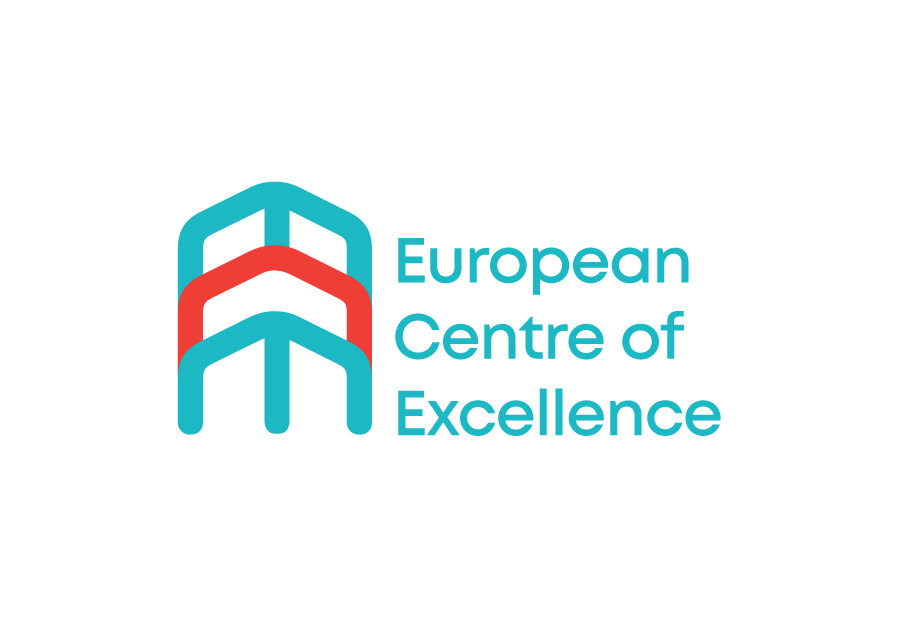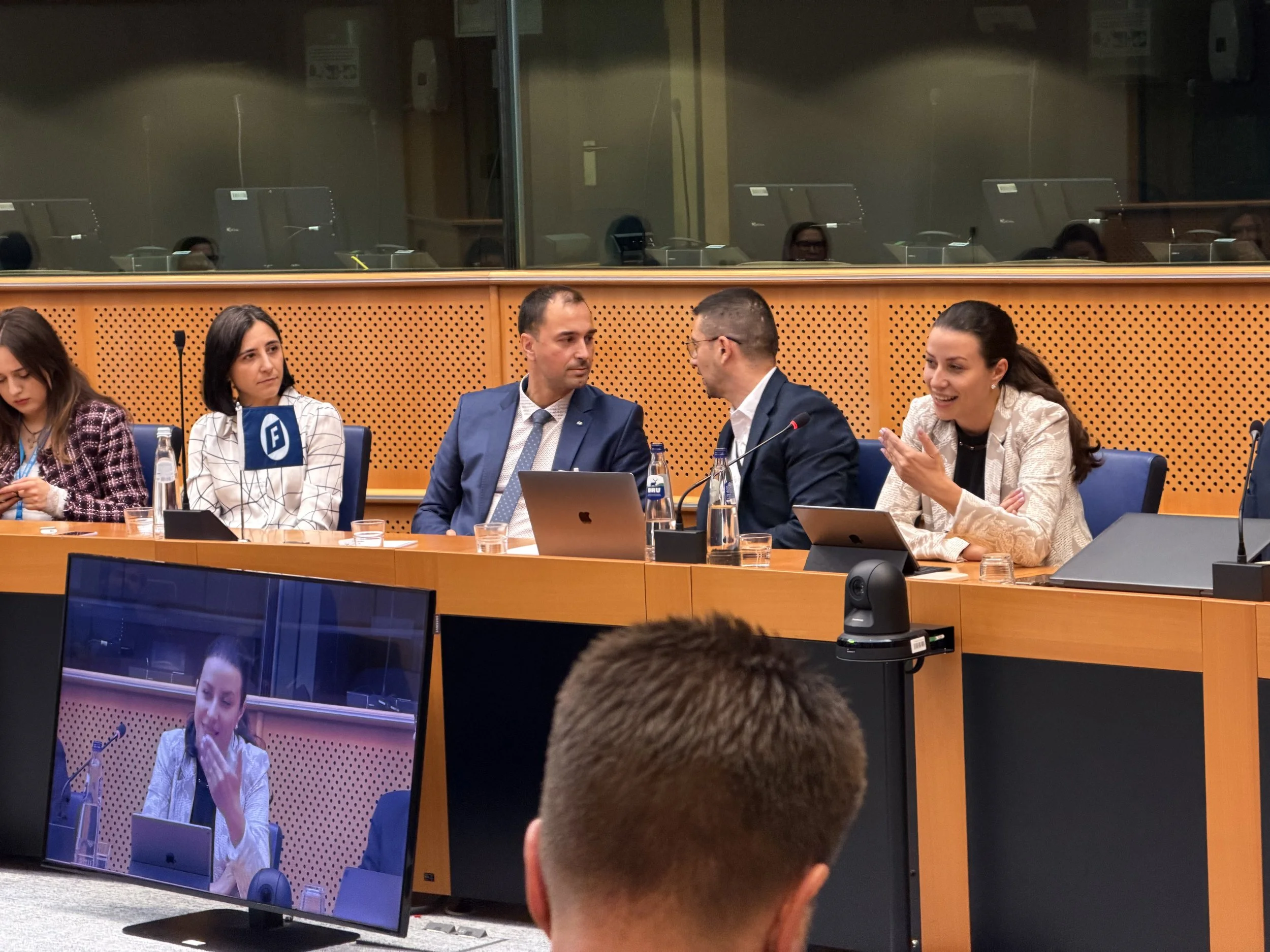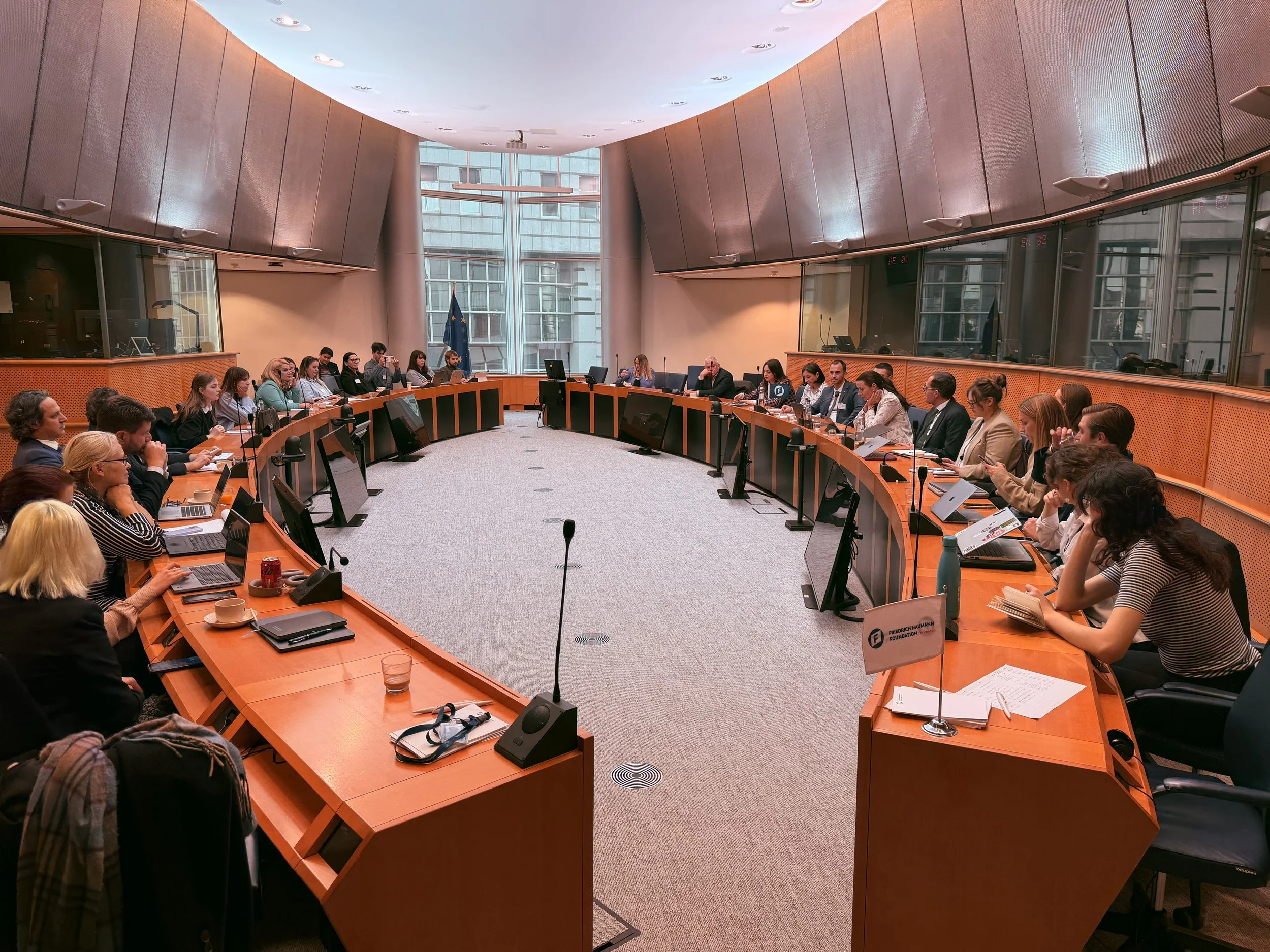Advancing youth participation in EU Accession: ECE Brussels publishes new policy insights in the European Parliament
European Parliament in Brussels, Promotion of the publication “Countering Youth Euroscepticism in the Western Balkans: The Case of North Macedonia” by ECE Brussels, FNF and IDUEP, hosted my MEP Irena Joveva
On 5 November 2025, the European Parliament hosted the official presentation of the publication “Countering Youth Euroscepticism in the Western Balkans: The Case of North Macedonia”, prepared by the European Centre of Excellence (ECE Brussels), the Friedrich Naumann Foundation (FNF) and the Institute for Good Governance and Euro-Atlantic Perspectives (IDUEP). The event brought together Members of the European Parliament, policymakers from the European Commission, representatives from civil society, diplomatic missions and international organisations, as well as researchers, and young professionals engaged in the discussion on the future of enlargement and youth engagement.
The publication is available on the following LINK
The event focused on the urgent need to address the growing sense of Euroscepticism among young people in some of the EU candidate countries, with a particular emphasis on North Macedonia. It presented findings from an online youth survey conducted in June 2025 with more than 1,000 respondents, shedding light on perceptions of EU accession, institutional trust, governance challenges, and pathways for strengthening youth engagement and European values.
European Parliament in Brussels, Promotion of the publication “Countering Youth Euroscepticism in the Western Balkans: The Case of North Macedonia” by ECE Brussels, FNF and IDUEP, hosted my MEP Irena Joveva
Introduction and opening remarks
Dr Aleksandar Ivanovski, President of the Executive Board of ECE Brussels in his introductory remarks highlighted the central dilemma facing policymakers today: whether young people in EU candidate countries still feel that Europe is equally looking back at them. Presenting several key findings from the study, he drew attention to the contrast between high support for EU values and declining belief in North Macedonia’s realistic prospects for EU membership.
As he noted, nearly 46 percent of young people believe the country will never join the Union, yet more than 40 percent continue to hold a positive view of the EU. This gap, he argued, demonstrates that youth scepticism is “pragmatic, not ideological”, driven by concerns about institutional credibility, lack of reforms, and limited visibility of EU-related opportunities.
Reflecting on the European Commission’s 2025 Enlargement Reports released the day before the event, Dr Ivanovski underlined the importance of a merit-based, transparent accession process and the new emphasis on gradual integration. He proposed three bridges to reconnect youth with the European project: making opportunities visible and accessible; involving young people as actors in reform processes; and communicating progress with realism while avoiding inflated expectations. “If we succeed,” he concluded, “euroscepticism will no longer be a verdict, but a phase - a temporary gap between expectation and delivery.”
Ivaylo Tsonev, Senior Project Coordinator at FNF emphasised that the topic is more relevant than ever and must be addressed without delay. The current joint research therefore comes at exactly the right moment.
“We need to act now - tomorrow might already be too late. When those who should benefit most from EU accession begin to question its meaning or timing, it sends us an important signal - that we must listen more carefully, act more consistently, and speak more clearly about what Europe truly stands for.”, said Tsonev.
Concerning the findings of the publication highlight that many young people in North Macedonia continue to believe in Europe’s values and opportunities, FNF Senior Project Coordinator stated that these ideals, yet and often feel distant from their everyday experience. “Our task is to make sure that every young person can recognise the European promise in their own lives, wherever they are.”
European Parliament in Brussels, Promotion of the publication “Countering Youth Euroscepticism in the Western Balkans: The Case of North Macedonia” by ECE Brussels, FNF and IDUEP, hosted my MEP Irena Joveva
Keynote Address by MEP Irena Joveva
In her keynote remarks, MEP Irena Joveva stressed that promises surrounding EU enlargement are meaningful only when backed by credibility and integrity. She underlined that both the EU and the candidate countries must demonstrate consistent commitment to reforms, rule of law, media freedom, and democratic governance.
Drawing on the messages from the publication and the broader political context, she emphasised that youth trust depends on visible delivery. Young people do not respond to abstract narratives or rhetorical pledges. They look for fairness, opportunities, and institutions that function. Enlargement, she stated, must be a political, societal, and generational endeavour. She also highlighted the importance of confronting disinformation and ensuring that young Europeans from candidate countries feel included in shaping Europe’s future.
Her intervention reinforced the overarching message of the event: that Europe’s credibility is the cornerstone of any successful enlargement process.
Presentation of the publication and recommendations
The publication’s co-author and ECE Brussels Director for Policy and Communications, Bojan Kordalov, opened his presentation by emphasising that solutions, potential, and concrete opportunities must remain at the centre of any discussion on countering youth Euroscepticism. The policy brief, he remarked, was designed precisely as a forward-looking instrument.
Kordalov presented the core messages of the study: Youth Euroscepticism in North Macedonia is not a rejection of Europe, but a call for credibility, as well as that the corruption remains the number-one perceived obstacle to EU membership
He presented the high interest and support among the young people in the EU mobility, work opportunities, and Erasmus+ demonstrates continued openness which makes many young people to engage directly with EU institutions, signalling the need for a structured dialogue and youth inclusiveness.
Pointing to structural challenges such as youth unemployment, institutional distrust, the education-to-labour-market mismatch, and the impact of disinformation on social media, he underlined the urgency of presenting a positive and realistic agenda.
The publication proposes four policy pillars to rebuild trust: 1) Economic empowerment and opportunities through targeted support for youth entrepreneurship, dual education, and EU-linked innovation initiatives; 2) Institutional inclusion and reform, ensuring that young people are systematically involved in policymaking and have simplified access to EU programmes; 3) Strategic communication and digital engagement, including youth-centred communication, co-creation of EU narratives with young influencers, and integration of media, digital, and AI literacy into education; and 4) European institutional action, such as embedding youth-related indicators into IPA and RGF monitoring, and creating a dedicated “Youth and Enlargement” strand.
Kordalov concluded with the publication’s central message: Europe will not be complete without its youth, and enlargement will not succeed without the trust of the young people in the process. The challenge ahead is to transform youth Euroscepticism into Euro-realism through visibility, opportunity, and consistent engagement.
European Parliament in Brussels, Promotion of the publication “Countering Youth Euroscepticism in the Western Balkans: The Case of North Macedonia” by ECE Brussels, FNF and IDUEP, hosted my MEP Irena Joveva





